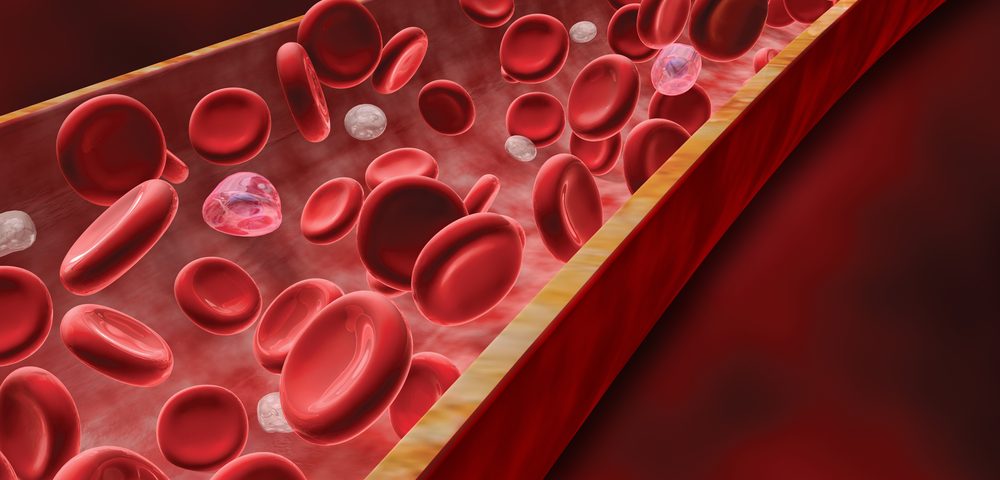The membrane type 1-matrix metalloproteinase (MT1-MMP) protein may be a promising therapeutic target for inflammatory bowel disease (IBD) — possibly targeting the disease in its early stages, a study in mice suggests.
Researchers found that inhibiting this protein decreased the formation of new blood vessels, which in turn reduced gut inflammation and disease severity.
The study, “Endothelial MT1-MMP targeting limits intussusceptive angiogenesis and colitis via TSP1/nitric oxide axis,” was published in the journal EMBO Molecular Medicine.
During intestinal inflammation, there is an increase in the formation of new blood vessels from pre-existing ones. This process, called angiogenesis, is thought to promote disease progression. However, the mechanisms underlying angiogenesis in IBD remain poorly understood.
To learn more, a group of researchers at the Centro Nacional de Investigaciones Cardiovasculares (CNIC) and the Centro de Investigaciones Biológicas (CIB), both in Spain, investigated the mechanism underlying the blood vessel formation process intussusceptive angiogenesis, more simply called angiogenesis. In this process, tiny blood vessels called capillaries expand and split, creating new vessels.
The team focused on an enzyme, or specialized protein called MT1-MMP that is found on endothelial cells, which are those cells lining the interior of blood vessels. The enzyme is responsible for vessels created during angiogenesis, and its levels are increased in inflammatory conditions.
The researchers used mice that were treated with dextran sodium sulfate (DSS) to induce colitis. This is one of the most common methods of establishing a mouse model of IBD. The treatment induced angiogenesis and increased the levels of MT1-MMP in the endothelial cells lining the blood vessels in the colon.
Deleting MT1-MMP from the endothelial cells of the DSS-treated mice reduced angiogenesis and improved blood flow, leading to milder disease in comparison with control animals.
In fact, removing MT1-MMP had a therapeutic effect on gut inflammation progression, with animals showing less weight loss and milder disease activity.
Next, the researchers used intravital microscopy — a powerful tool that allows observation of several biological processes in live animals — to evaluate the role of MT1-MMP on vasodilation. Vasodilation, which is the widening of blood vessels, is one of the first steps of angiogenesis. After injecting a vasodilator called acetylcholine in the mice, the researchers examined the blood vessels supplying the cremaster muscle, which covers the testicles and spermatic cord.
Without MT1-MMP, the vessels were not able to dilate fully in response to acetylcholine, the team found. Similar results were found in blood vessels supplying the intestine.
The researchers determined that MT1-MMP cuts one of its targeted proteins, called TSP-1, generating a fragment that binds to a molecule called integrin αvβ3. Integrin activation, in turn, triggers the production of nitric oxide, a vasodilator, promoting blood vessels’ dilation and angiogenesis.
The DSS mice treated with an antibody that inhibited the “cutting” tool of MT1-MMP, or a molecule that halted the interaction of TSP1 with integrin, had a reduction in the formation of new blood vessels.
“[We were able to] reduce vessel duplication in mice with colitis by administering either an antibody that inhibits MT1-MMP protease action or a TSP1 peptide that blocks TSP1-αvβ3 binding,” Sergio Esteban, the study’s first author, said in a press release.
“This result establishes the MT1-MMP-TSP1-αvβ3 integrin pathway as a new therapeutic target, particularly for less severe forms of IBD,” Esteban added.
Researchers then measured the levels of TSP-1 in a group of people with IBD, including 50 patients with ulcerative colitis (UC) or with Crohn’s disease (CD). They found that TSP-1 was significantly more abundant in the blood of both UC and CD patients with mildly active disease, compared with healthy controls. However, elevated TSP-1 was not found in people with highly active UC and CD.
“The study shows that patients with mild IBD have higher than normal circulating levels of TSP1, which could be a useful biomarker of the disease,” said Alicia G. Arroyo, MD, PhD, the study’s lead author.
“Our results identify MT1‐MMP as a new actor in inflammatory IA and a promising therapeutic target for inflammatory bowel disease,” the researchers concluded in their study.
Arroyo said the study “presents a new opportunity to develop personalized treatments not only for patients with IBD, but also for patients with other diseases that progress through vessel duplication, like cancer.”

